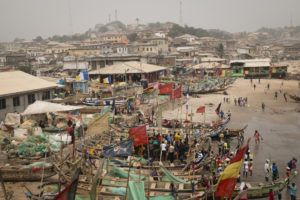Special Economic Zones Policies Contribute to Urbanization and Inclusive Growth in Africa

There has been an increasing number of Special Economic Zones (SEZ) in Africa since the early 1990s. While there were only around 20 SEZs in the early 1990s in Africa, the number amounted to more than 200 zones all over Africa in 2021. These zones are established to “promote local economic development and reduce regional disparities” (Abagna et al., 2025: 1). In policy debates and academic research, little attention has been paid so far to the impact of SEZ on the households’ welfare development in Africa. Matthew Amalitinga Abagna, Ph.D. (University College Dublin), Cecília Hornok, Ph.D (Former researcher, Kiel Institute) and Dr. Alina Mulyukova (Kiel Centre for Globalization & Kiel Institute) investigated this issue using a novel dataset on households residing around SEZs in ten African countries between 1990 and 2020.
The authors find statistically significant evidence suggesting a positive impact of SEZ establishment on household wealth compared to the national average. The impact is the strongest for households located within the 10 km distance band from the SEZ and the positive impact on wealth vanishes for households living in the 20-30 km distance band from the SEZ. Abagna et al. (2025) also find evidence for an “improved access to household utilities such as electricity and sanitation, enhanced housing quality, and increased household consumption of durable goods” (Abagna et al., 2025: 2). Their analysis shows that implementing SEZs increases the relative wealth position of all wealth deciles, with the (lower) middle class profiting the most. Furthermore, SEZs induce more educated and wealthier households to move into SEZ neighborhoods. The authors thus conclude that appropriate SEZ policies do not only have a positive wealth impact on households living close to SEZs but also facilitate the urbanization in the targeted areas and “have the potential to contribute to more inclusive economic growth across the continent” (Abagna et al., 2025: 17).
Abagna, M.A., Hornik, C., and Mulyukova, A. (2025), “Place-based Policies and Household Wealth in Africa“, Journal of Development Economics (176: 103482), the corresponding working paper is available here.



 KCG Projects
KCG Projects


